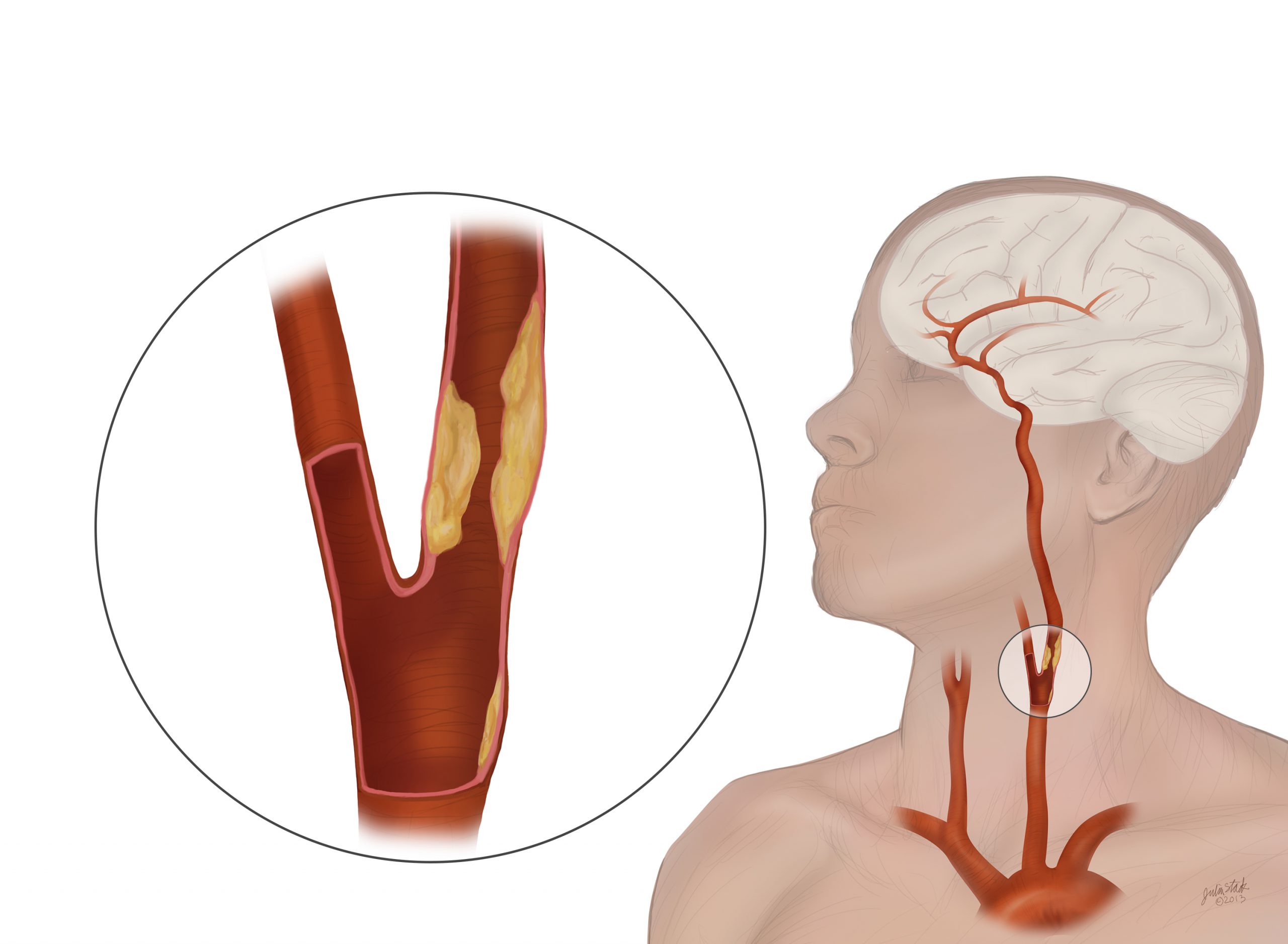Carotid Disease Q & A
Carotid stenosis is a condition that refers to the stiffening and narrowing of your carotid artery, which is the primary blood vessel to your brain, due to the buildup of fatty deposits along the blood vessel wall. The narrowing of the blood vessel may deprive your brain of oxygen or increase your risk of stroke.
You may be at risk of developing carotid stenosis if you have a history of high blood pressure or high cholesterol, smoke cigarettes, or are obese. Not getting enough exercise may also increase your risk.
Carotid stenosis often develops without showing any signs or symptoms. You may not know the blood vessel is narrowing until you’ve had a stroke or you’ve experienced a transient ischemic attack (TIA), which is a lack of oxygen to your brain.
Signs and symptoms of a stroke or TIA include the sudden onset of:
- Difficulty speaking
- Numbness in your face or extremities
- Difficulty seeing
- Loss of balance
- Severe headache
You should seek medical attention right away if you’re experiencing any of these symptoms.
Your specialist at FSA Vascular Clinic conducts a thorough examination to see if your symptoms are related to carotid stenosis. Your examination may include:
- Complete physical
- Review of your symptoms and medical history
- Listening to your carotid artery
- Test of your mental and physical capabilities
To confirm that your carotid artery is narrow, your specialist may conduct diagnostic testing, such as a carotid ultrasound, to get a better look at the blood vessel.
Treatment for your carotid stenosis may depend on the severity of your blockage. If your blockage is mild, your specialist may suggest lifestyle modification or prescribe medication to help lower your cholesterol or blood pressure.
If your blockage is severe, or you’ve suffered a stroke or TIA, then our vein specialist may recommend a carotid angioplasty or stenting to improve blood flow to your brain.
Carotid stenosis progresses slowly over time. Getting a diagnosis early can help you make the changes you need to reduce your risk of having a stroke or TIA. For an evaluation, call **** today, or request an appointment online.

